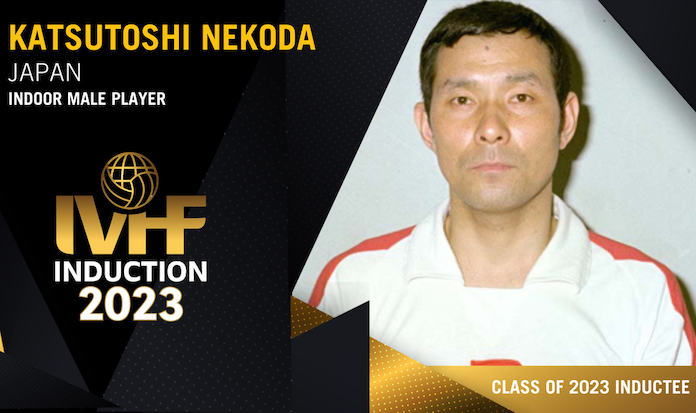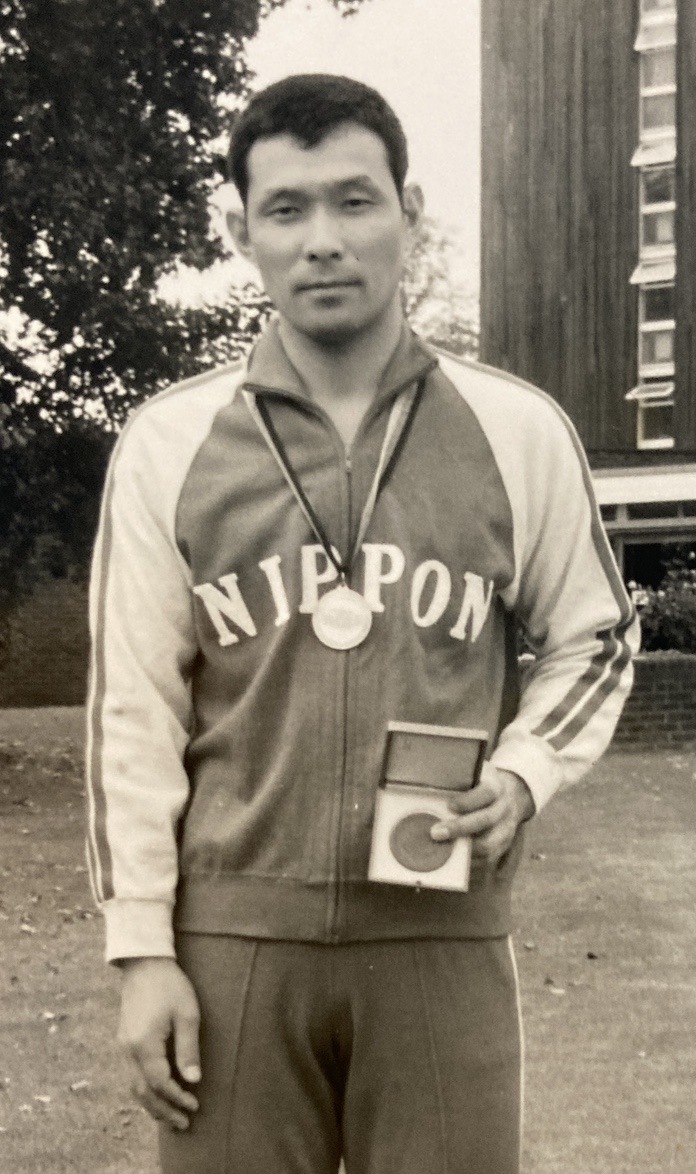2024 International Volleyball Hall class: Hovland, Henkel, Bell, Zorzi, Guimares, Rezaei, Pereyra, Lemair...
May 20, 2024
October 16, 2023

It’s induction week at the International Volleyball Hall of Fame in Holyoke, Massachusetts. Six inductees will join the previous 161 players, coaches, administrators and leaders from 25 countries who have already been enshrined in the museum at the birthplace of volleyball at the ceremony Saturday. We have stories on all six, continuing with Katsutoshi Nekoda from Japan:
Shortly before the 1972 Olympics, Japanese setter Katsutoshi Nekoda went down with a devastating broken leg. Undeterred, Nekoda called his coach, asked him to bring a volleyball to the hospital, and in a wheelchair, Nekoda practiced his craft over and over again.
And then some.
It paid off. Later that summer at the Munich Games, with Nekoda at the helm, Japan went undefeated in seven matches, losing only three sets total, to capture the Olympic gold medal.
Such is the legend of Katsutoshi Nekoda, an inductee into the 2023 class of the International Volleyball Hall of Fame.
“He was the best (setter) ever. No question about it,” Bill Neville said emphatically.

Neville should know. Over the past 56 years, he has had a courtside seat witnessing the greatest players in modern history. His resume includes stints coaching both the USA and Canadian national teams, and in 1984 he was an assistant to Doug Beal when the USA won the Olympic gold medal in Los Angeles.
“Nekoda did everything with the volleyball except restore it life,” Neville added. “He was a great leader. Just the way he presented himself. Great composure. His choice of sets, their accuracy, the way he conducted the game. He was the equivalent of a great quarterback.”
Nekoda was born in Hiroshima on February 1, 1944, 18 months before the atomic bomb was dropped on that city. He caught the volleyball bug at a young age. Legend had it that between ages 14 and 29 he set 1000 balls a day. Just 20, in 1964 he led the Japanese national team to a bronze in the first Olympic Games that featured indoor volleyball, which happened to be in Tokyo.
The world quickly took notice.
“Nekoda was a groundbreaker in that he was the first of the 5-1 setters that later became more popular in the international game,” said Terry Liskevych, coach of the USA women for 11 years. “Nekoda was really the first guy who set the standard for quick sets everywhere on the court. He would jump set and take everything in the air. It made him more deceptive.”
If Nekoda had a weakness, it was his height: He was only 5-foot-9.
“He anticipated very well,” Neville said. “He never made a bad set or bad choice. You could build around him. He absolutely convinced me that a 5-1 setter was the best system if you had a good leader, a good setter.”

Japan was at its historical best when Nekoda was setting. The only three medals the country has ever won was when Nekoda was in the driver’s seat. In addition to the gold in Munich and a bronze in Tokyo, Japan won a silver in Mexico City in 1968. He participated in the quadrennial spectacle one final time in Montreal in 1976, where he was selected as the flagbearer at the opening ceremony for the entire Japanese Olympic delegation.
His other volleyball playing honors included winning bronzes in the 1970 and 1974 World Championships.
But far more than any hardware was the pioneering impact Nekoda had on the game. His legacy is enormous. Aside from being the progenitor of the 5-1 offense, a pioneer in quick sets and jump sets, Nekoda is known for his serving. His Wikipedia entry lists him as “the man who invented the ceiling serve, a serve where the ball is hit up toward the ceiling with all the lights to make it difficult to judge the landing.”
Nekoda passed way too young at age 39, from stomach cancer, in 1983, just seven years after playing in his final Games in Montreal, the only time Japan did not medal when he was at the helm (they finished fourth).
He is gone but certainly not forgotten. There is a gym named after him in his hometown of Hiroshima and his picture and name are all over it. He was posthumously named by the FIVB as one of the top players in the 20th century. And now, the greatest honor of all, selection into the International Volleyball Hall of Fame.
(special thanks to Don Patterson and Terry Liskevych for their help)
***
Look for more stories this week on Olympic gold medalist and four-time Olympian Phil Dalhausser (United States, beach male player); two-time Olympic medalist and five-time FIVB World Tour Champion Larissa França Maestrini (Brazil, beach female player); four-time Olympian and three time Olympic medalist Yumilka Ruiz (Cuba, indoor female player); and longtime administrator within various national and international federations and the first member to represent Thailand in the IVHF, Shanrit Wongprasert (Thailand, leader).
ICYMI
Sunday: Silvano Prandi of Italy
Click here for ticket information and if you won’t be at the ceremonies they’ll be streamed at IVHF.org